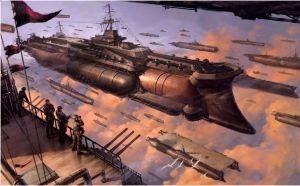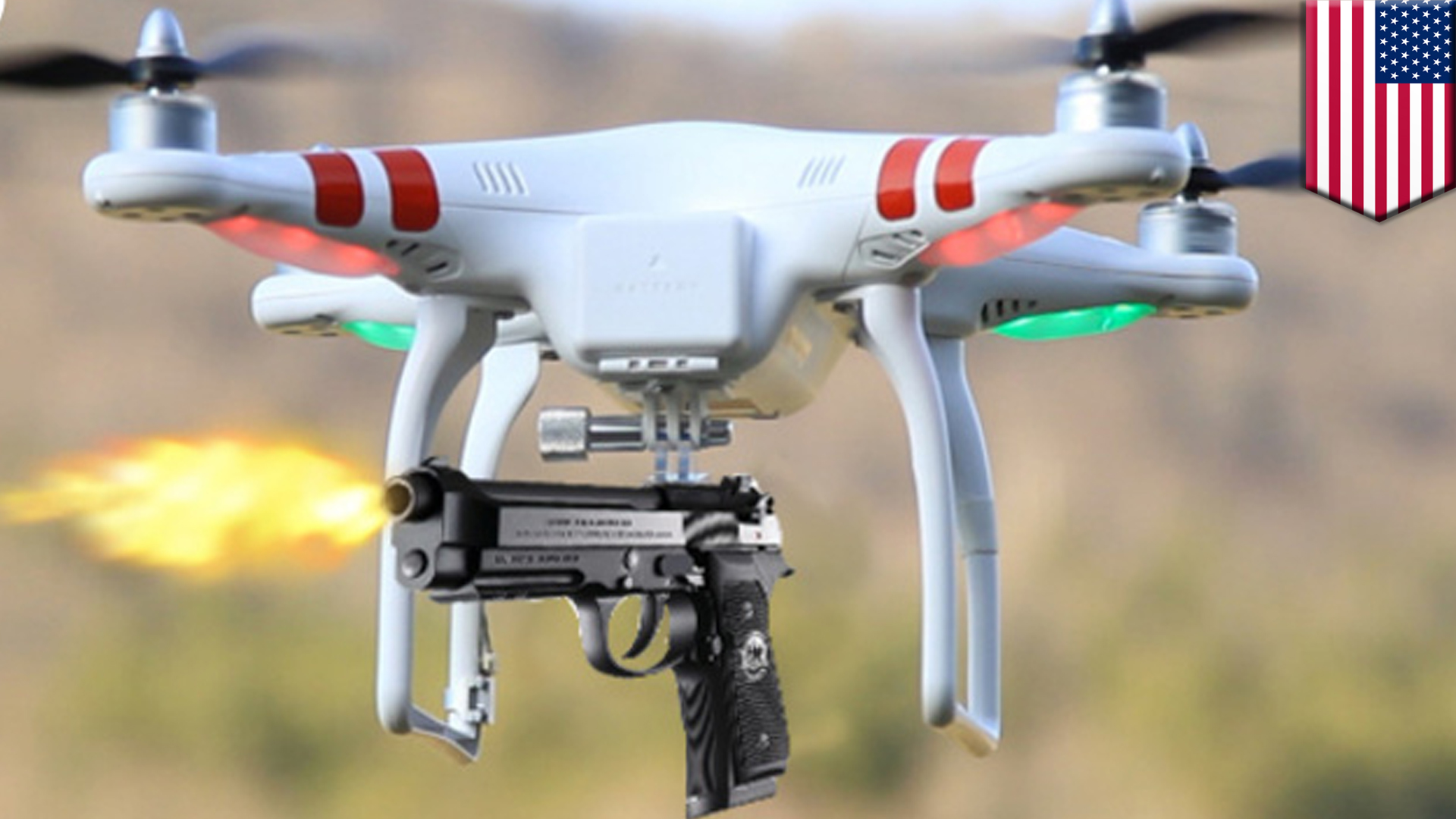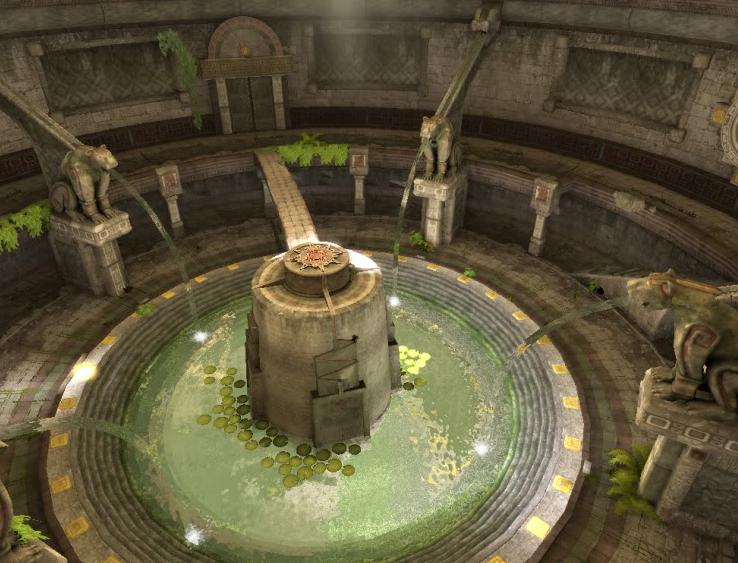Excerpts
Jesse Goes to See- Excerpt from Book Two of OMAI

Jesse Goes to See
New Union Station, Saint Louis, RSA
Mid-Morning, July 8, 2129 (AU78)
It might be a promotion but it sure felt like a “get-the-hell-out-of-town” card, no matter how they gussied it up. He had to stop by Marlow-White to get his new oak leaf insignia, adding one more small irritation in a week complicated by bad dreams, hot weather, and an assassination attempt. Being made a major did give him some juice to treat with the locals, if he needed to, he admitted. After bundling his government-issue duffle into the train coach, Jesse boarded as early as he could, hoping to sleep on the way down—sleep, and not dream.
The night of his poisoning, after he lost consciousness, the dreams came, harrowing images: a grotesque apparition, a moldering corpse, rushed at him from the shadows with arms outthrust to embrace him. Slashing the horror with a dream saber, he had lopped off its head, only to discover, when he picked it up, that he held Malila’s head, a look of betrayal on her face. They got worse from there. After struggling up the deep well of darkness to consciousness, the first thing he saw was Gage Thomas.
“I told them docs that they were wasting scarce resources on you, Jess. That as soon as you were well enough, I was gonna kill you with my bare hands. A green-as-grass neophyte wouldn’t have let himself get poisoned so easy!”
Jesse groaned and rolled over to vomit. Hours later they were able to talk.
“Ye seem to be enjoyin’ my discomfiture, boss,” Jesse said, barely able to recognize the voice as his own.
“And, you seemed to be enjoying the hallucinations, from what the corpsmen told me.”
“A few. Ainelie healthy t’ing to do with ’em. Any idea how they got t’ me? And who? And, for Pete’s sake, why?”
“You’ve got an abrasion on the back of your left hand. Tests positive for something like Sarin. Already found the mailbox. Neighbor said the young guy had come to work on it was a stranger.”
Jesse ran a hand over the bandaged site and winced before give a short bitter laugh.
“Oldie but a goody, eh? Pretty clever, when you think about it. No messy collateral damage and the hit man didn’t have to do anything up-close and personal. So who and why?”
“Who is a good question. You have your choice of several flavors: the Unity, the Syntopians, or …” he said before he drifted to the window, separated the blinds and looked out.
“Seriously? I haven’t heard about the Syntopians since I was in school. Are they still around? The last time I checked, they’d pretty much dwindled to a few oddballs who thought you could catch religion from Ageplay.”
“They have dwindled,” said Thomas, turning to look at Jesse again. “But the ones left over are pretty rabid. They keep on issuing fatwahs about how you’re some kind of walking dead, sucking their humanity away to make yourself older. As they get more marginalized, they’re getting more weird. More like some secret society now. No one knows who’s in it or runs it.”
“Okay. A ‘Last Gasp Syndrome’, but surely the Unity’s got no agents inside America. They’d stand out like sore thumbs.”
“Possibly. We haven’t discovered any agents in thirty some years. If they’re here they’re in tall grass and doin’ a good job of it. However, they’re now aware you’re accessible, not some myth. They may try to take you out as a morale booster for them.”
“Not sure the Unity works that way. ‘Or who?’ You were going to add a third, weren’t you?”
General Gage looked out the hospital window again with his back to the old man for several long seconds before again looking back to Jesse.
“Us, the army. I think you’ve some real enemies in the regulars.”
“When did I rain on their parade?” said Jesse before lying back and looking up at the ceiling, clenching his hands on the white coverlet.
“I think some find having an authentic ‘frontier warrior’ in their midst lacks appeal. You’ve already done what they’re saying they want to do, and you’ve done it longer, more often and with fewer resources. They’d be delighted to sing your praises … at your funeral,” Thomas said slowly, emphasizing each word.
“Doesn’t that kinda put you in the middle? Crazy colonels will do what they will do, but all the irregulars are under your command, at least officially.”
“New days are coming, Jess. They’re talking about regular army patrols in force on the frontier, with good air defenses. Move up to to the Rampart and start bio-converting all the plant life. They need me around for my frontier contacts, but that doesn’t stop them from looking close at the irregulars. Reuben Alexander was arrested today. Say they’re going to court martial him — ‘conduct unbecoming.’ Smart money says he’ll get two years in Leavenworth.”
“So they’re trying to get to you through us. Reuben’s a mean old cuss and a half, but whatever he did was to make the frontier safer for real live people. ‘Course, he has the next ninety years to get the bad taste out of his mouth. The army’s alienating as good a fighter as America has in Reuben. He just might not come running the next time the regulars get their fat in the fire, like he did at Cleveland. That said, I don’t think even crazy colonels try to assassinate their own citizens.”
“I’m not going to set up the experiment for you, Jess. I have a way to get you away for a while.”
“Thought you might,” said Jesse and lay back to see what Gage had concocted.
That had been only yesterday. Officially, he would be discharged from the hospital tomorrow morning. Unofficially he had been smuggled out the back in porter’s clothes pushing a gurney covered to look like a body. People either fled or looked intently at the shrouded shape, but never at the gurney driver.
On time, the train gave a lurch before pulling out of New Union Station. Jesse’s view out his window showed the inevitable rail cuts. Here the local communities maintained the concrete canvasses that lined the cuts, vying with each other to add local flavor for passing trains. Even the commercial center had a colorful mural by an artist partial to bounteous women with wholly inadequate clothing allowances. Lafayette Square, The Gate, Tiffany, Botanical, and all the others, came in with colorful and quirky reminders of what was going on in the city outside the right-of-way. It was not until the train curved south to cross the Meremec that Jesse could see open country. Fields, showing the odd verdigris of new growth, patchworked together unnatural greens, oranges and reds. New strains had been developed to deal with the Scorching and their foreign hues disturbed him now as they always did. The bad old days of pellagra and kwashiorkor, were gone, even if he had to get used to new shades of vegetables.
He chuckled.
A young mother with two toddlers whom she had only just gotten to quiet down for the trip looked over at him uncertainly. The old man nodded and smiled at her and was rewarded by the oldest girl standing to stare at him in toothy wonder. Farmers were smarter now than before the Scorching. America could feed itself even with a large chunk of its hinterland rendered useless. The new strains were tolerant but less generous. Farmers and land had come into short supply. America, unwillingly, had become more agrarian, again.
The little girl was chubby, confident and healthy. It felt good to see the change. She reminded him of Ethan, of Sally … and of Malila: the hovering protective joy of the young mother. Malila would have been a good mother.
Jesse shook his head. Now, they would never have that conversation.
You, old man, are guilty of romantic hallucinations in the first degree, he thought. They had spent weeks together, alone. He had seen Malila at her worse: scared, angry, hateful, cold and near death. She had seen him stumbling, bruised, scabrous, and demented with the scurvy. And yet they had never talked about important things: what music she liked, what she thought about having kids, how she felt about his beliefs, her beliefs. Now it was too late. He remembered her scent, the scent of her after she washed and was with him under the sleeping furs trying to warm up before she could drift off. Every night it had taken a good deal of effort to let her sleep.
He looked out again at the fields until he droused, as the car filled at each stop. Even so, the seats were generous enough. He nodded off, sleeping the rest of the way down to the coast. He was still muzzy, lugging his duffel to a cab as he set out for the docks.
Jesse’s ID badge got him in the gate. His orders got him to the docking facilities, but it took all his native diplomacy to shift a taciturn Marine sergeant into getting him admitted to the gangway. Saluting the colors, he asked permission to come aboard from a young ensign with a prematurely fierce scowl. Returning Jesse’s salute, the ensign assigned a man to move his duffel to a cabin and sent another to escort him to the bridge.
Jesse was led down several decks from the entry port. Men moved deliberately and efficiently along the slightly canted decks with barely a word or gesture as they passed. Jesse’s escort “made a hole” for him to follow at speed. Even so their progress was slow enough for Jesse to appreciate the elan the crew demonstrated: fit, confident and competent. Finally Jesse was presented at a companionway guarded by one more Marine before being admitted to the bridge.
“Johnstone, Jesse A., Major RSA, Volunteers, reporting for duty as per orders, sir!”
Under the glare of artificial lights and computer screens, Jesse recognized a frowning Rear Admiral Patricia Tillman, RSAN. She seemed to have been stretched at some previous moment of her life and to have only recoiled reluctantly and incompletely. She wore rimless glasses, giving her the air more of a scholar than a sailor. Turning to another senior officer, who was watching the proceedings below through long binoculars, she said, “Captain Hake this is our supernumerary, Dr. Johnstone.”
Despite his obvious distractions, the shorter robust coffee-colored officer turned, smiled and offered a hand to Jesse.
“Pleased to meetcha, Doc. Andrew Hake, captain. You’re the last of our chicks to make it. I hope we can show you a thing or two while you’re onboard.”
“Thanks, Captain, I’ll try to stay out of the way as much as I can. You look busy.”
“Yep, we cast off in ten minutes; you nearly got left ashore.”
“Time and tide, I understand.” Jesse smiled.
“Stand over there if you want to observe. We’re going to be busy until we clear the harbor.”
Jesse went to the indicated small space behind the hatchway that gave him a good view through the large slanting portholes. Hake immersed himself again in his observations, at intervals barking short concise orders that were seconded by his staff and enacted by the yeomen at control consoles that reminded Jesse of a mechanized saddle. The old man watched as the lines were singled up by the automated shore crew.
“Cast off, forward.”
“Cast off, aft.”
The bridge was silent. Slowly at first, the ship gathered weigh … rising several hundred feet into the air. Jesse could hear the turbines cut in along the huge hull, far above him. The RSAN Illinois, newest and largest airship ever built, was aloft in defense of her country.

Floating out over Algiers Island and then the marshy hinterland of the delta, the Illinois gather speed. The Mississippi river, making and remaking its course over the centuries had, in its most recent evolution, succeeded in its siege of New Orleans, leaving as a remnant only the area surrounding Orleans Island Air Navy Base. New Orleans proper had retreated uphill to Baton Rouge.
Captain Hake motioned to Jesse.
“Most of the excitement is over for a while. This is a shakedown cruise so we’ll be running drills and exercises over the next few weeks. For now though, you might want to find your cabin and get stowed away.”
“Aye, aye, Captain. I shall leave you to it.”
‹ Back








